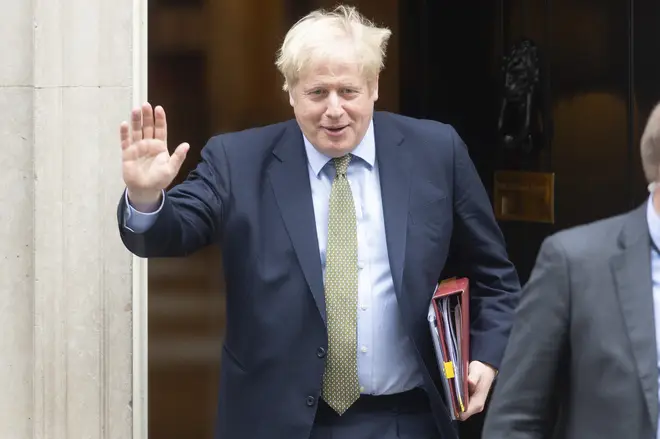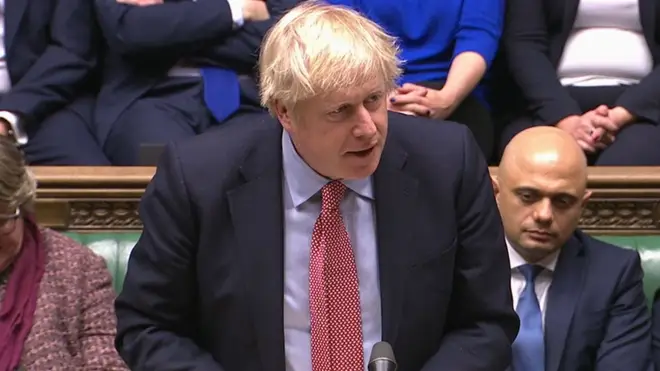
Clive Bull 1am - 4am
9 January 2020, 17:38 | Updated: 9 January 2020, 22:09

Boris Johnson's Brexit withdrawal deal has been passed through the Commons on its third reading.
MPs voted 330 votes to 231 - a majority of 99 - meaning the UK is now one step closes to leaving the European Union on 31 January.
The vote means the deal only needs to go through the House of Lords before being given Royal Assent and brought into law.
But it is possible the Lords could spell trouble for Mr Johnson as the Conservative Party does not hold a majority in the upper chamber.
Theresa May had spent almost two years trying to get a deal through the house, and before the general election Mr Johnson had also tried and failed to get it through.
But less than a month after winning a majority of 80, Mr Johnson's new government flexed its muscles to dominate in the final vote.
The Government faced continued criticism over the issue of allowing unaccompanied child refugees to continue to be reunited with their families in the UK after exit day.
The previous government had accepted an amendment from Labour peer Lord Dubs seeking continued protections for child refugees after Brexit but, following his election victory, Mr Johnson re-drafted the European Union (Withdrawal Agreement) Bill and withdrew his commitment.
A new Conservative MP used his maiden speech to defend the Government's decision.
Tory David Simmonds said, while it is clear that issues around the resettlement of vulnerable children are "very much in the minds of many members", it is "absolutely right" that these issues are for the Immigration Bill, rather than the Withdrawal Agreement Bill (Wab).
Speaking of his former role leading the national work across local government on the resettlement of refugees in the UK, Mr Simmonds (Ruislip, Northwood and Pinner) said: "What tends to happen is young people are brought to Britain to be linked up with a distant cousin and in fact, they almost immediately become an accompanied asylum-seeking child and therefore in the care system of this country."

He added that young refugees in the EU are "already within countries that have child protection systems that are very similar, equivalent and in some cases better to our own".
Earlier in the debate, Brexit Secretary Sir Keir Starmer said Labour can still "win the moral argument" after its bid to enshrine protections for child refugees in the Government's Brexit agreement failed.
He urged the Government to "reconsider" its opposition to his party's plans, adding that Labour "may not win many votes in this Parliament, but we can win the moral argument".
Brexit Secretary Steve Barclay told MPs the Government remains committed to taking in unaccompanied children after Brexit, but the Wab was not the right place to do this.